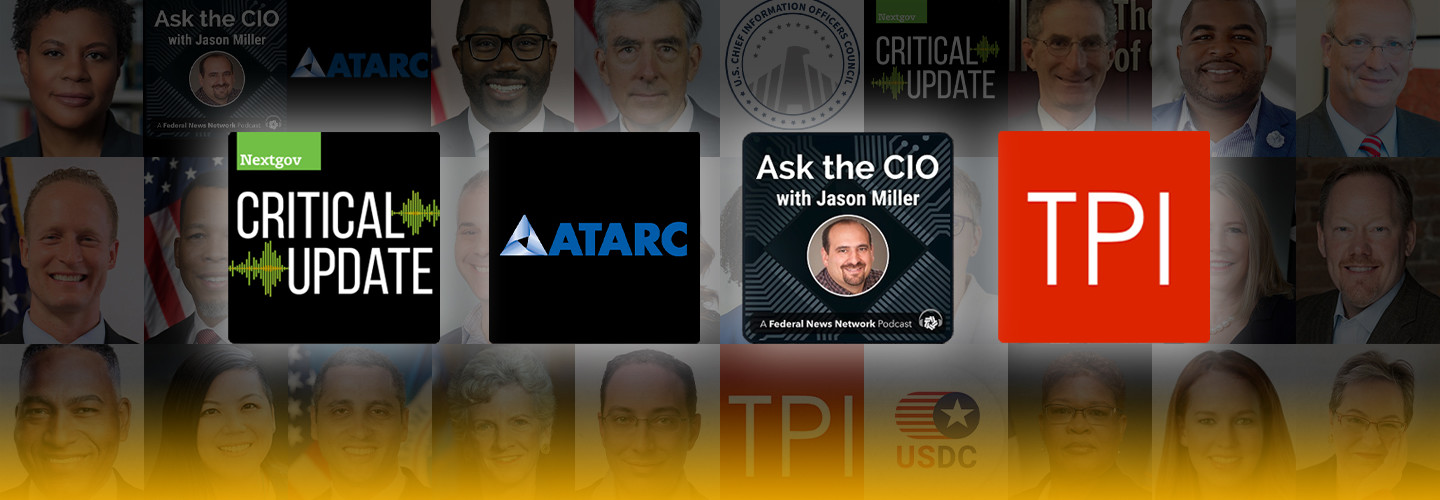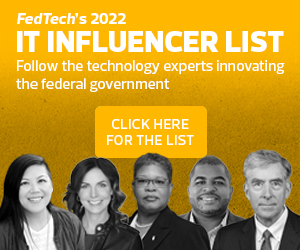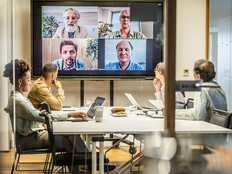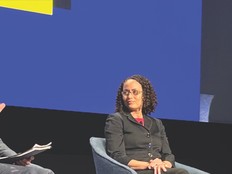1. Ask the CIO
This weekly podcast from Federal News Network covers not just CIOs but CISOs, program managers, retired government officials, procurement experts and more. Ask the CIO host Jason Miller provides a deep dive into each week’s topic, helping listeners stay up to date on the ever-changing federal environment.
The podcast is a lively and accessible way to keep up with the constantly changing lineup of CIOs and evolving policies.
Sample quote: “IT asset management might be construed as something that’s simple, but it’s not, especially when you consider large agencies. Some of the agencies that we engage with have millions of endpoints, and so, to conceptualize how much data that is, it’s incredible.”
- Richard Grabowski, Acting Program Manager, Continuous Detection and Mitigation Program, Cybersecurity and Infrastructure Security Agency
EXPLORE: What FedTech’s 2022 IT influencers think about the state of the federal IT workforce.
2. ATARC Federal IT Newscast
As a major nonprofit group focused on working with government to solve emerging technology challenges, the Advanced Technology Academic Research Center has its finger on the pulse of federal IT.
Its ATARC Federal IT Newscast includes several recurring programs, including the new “Solving for X,” on customer, employee and workforce experience; the self-explanatory “Digital Transformation with Jennifer Kenney-Smith”; and “In the Nic of Time,” hosted by Nicolas Chaillan, the outspoken former chief software officer of the U.S. Air Force and U.S. Space Force.
Sample quote: “I see a blur between customer experience and employee experience. For me, these are inseparable components. When I talk about systems, I don’t really focus on whether the system will improve employee experience or customer experience. My community includes both.”
DISCOVER: Federal IT influencers worth a follow from previous years.
3. Critical Update
Although zero trust and customer experience are currently top of mind for federal IT workers, there’s more to government technology. Tune in to Critical Update and learn about quantum technology, sending humans outside our solar system and why stellar tech prototypes don’t always make it into people’s hands.
Hosted by Nextgov reporters and editors, this podcast has been on the air for 13 seasons and remains a valuable source of information backed by a heap of institutional knowledge.
Sample quote: “What is enough data? We can’t use everything we have; we always have to thin things down. But on the other hand, there’s no such thing for me as redundant data. The more different kinds of data you have that can help inform each other and provide insurance against loss of another kind of data definitely helps the process.”
- Jim Yoe, Satellite Scientist, National Centers for Environmental Prediction, National Oceanic and Atmospheric Administration
LEARN ABOUT: The evolution of edge computing and data analytics in federal IT.
4. Two Think Minimum
For those who want to take a deep dive into high-level tech policy, belly up to the bar with Two Think Minimum. This podcast is produced by the Technology Policy Institute, a think tank that focuses on the economics of innovation and technological change.
The podcast has delved into Section 230 of the Communications Decency Act, the history of spectrum auctions as it relates to 5G and antitrust issues. It also touches on issues relating to state-level technology, such as the expansion of broadband.
Sample quote: “It would be better in many cases, if you want to limit the amount of harmful information, to make the platform liable in addition to or instead of the information source. It’s often hard to identify the source and bring action against them.”
- Stan Besen, Senior Consultant, Charles River Associates










